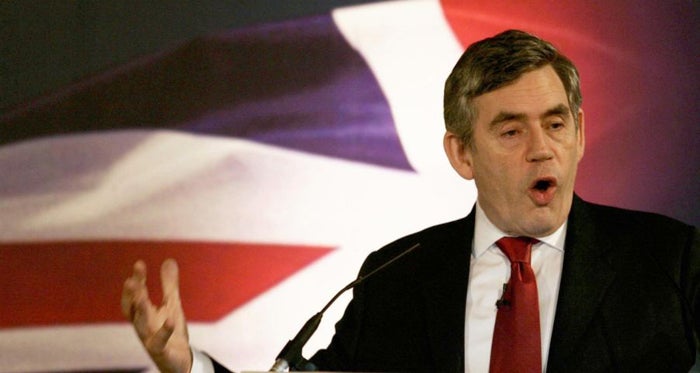Brown's plans for 'earned citizenship' come under fire

Your support helps us to tell the story
From reproductive rights to climate change to Big Tech, The Independent is on the ground when the story is developing. Whether it's investigating the financials of Elon Musk's pro-Trump PAC or producing our latest documentary, 'The A Word', which shines a light on the American women fighting for reproductive rights, we know how important it is to parse out the facts from the messaging.
At such a critical moment in US history, we need reporters on the ground. Your donation allows us to keep sending journalists to speak to both sides of the story.
The Independent is trusted by Americans across the entire political spectrum. And unlike many other quality news outlets, we choose not to lock Americans out of our reporting and analysis with paywalls. We believe quality journalism should be available to everyone, paid for by those who can afford it.
Your support makes all the difference.Gordon Brown was accused yesterday of treating immigrants as "second-class people" as he announced stricter rules for foreigners who want to become British citizens.
The Home Office set out moves to introduce an "earned citizenship" system for migrants from outside the European Union who want to become British.
At present they are first eligible for a passport five years after they arrive in this country. Under the proposals, they will have to serve a further probationary period of one to three years. They will also face more tests to prove their worth. They will have to show they are making efforts to integrate in British life, for instance by undertaking community work, running a sports team or play group, or serving as a school governor.
While they are on "probation", they will be denied non-contributory benefits such as council housing and subsidised higher education. Foreigners who want to marry a UK national will be required to pass an English test before they are allowed to settle in this country. Serious offenders will automatically lose any right to citizenship and be deported, while those convicted of minor crimes that do not carry a prison sentence will face extra delays before getting a passport.
Foreigners will also have to demonstrate fluency in English and knowledge of the British way of life. After five years in the country, they will have to choose to apply to become a citizen or a permanent resident. Those refusing to take either option will be ordered to leave.
Jacqui Smith, the Home Secretary, said: "I would want to see a larger proportion of those that are here moving to full British citizenship. You will not be able to languish in limbo."
She also said visa fees will be increased to meet the cost of providing extra public services to incomers and their families, such as health treatment and school places.
Mr Brown said yesterday he wanted the process of becoming a citizen to be made "more exacting". He took the Home Office by surprise by announcing English tests for new spouses, a move that would hit immigrants from the Indian sub-continent.
The Prime Minister said: "We will introduce a new English language requirement for those applying for a marriage visa and planning to settle in the UK – both as part of our determination that everyone who comes here to live should be able to speak English and to make sure they cannot be exploited."
Habib Rahman, the chief executive of the Joint Council for the Welfare of Immigrants, predicted ethnic minority groups would be hostile to the proposals. He said: "They will be particularly upset and they will feel they are treated like second-class people ... It might take 10 years to become a citizen, which is a quarter of your working life."
Labour MPs condemned the proposals, with Marsha Singh, the MP for Bradford West, warning they would create "great resentment" in his constituency.
Fiona Mactaggart, a former Home Office minister, said: "One reason we have such excellent race relations is because migrants relatively quickly achieve permanent residence, unlike other countries in Europe for example, where their status remains insecure and unclear for a long time.
"I am very concerned these proposals might damage our good relations."
Keith Vaz, the chairman of the Commons Home Affairs Select Committee, said: "I am concerned some may view the move to charge some migrants more as a double taxation and may be viewed as discriminatory."
Join our commenting forum
Join thought-provoking conversations, follow other Independent readers and see their replies
0Comments